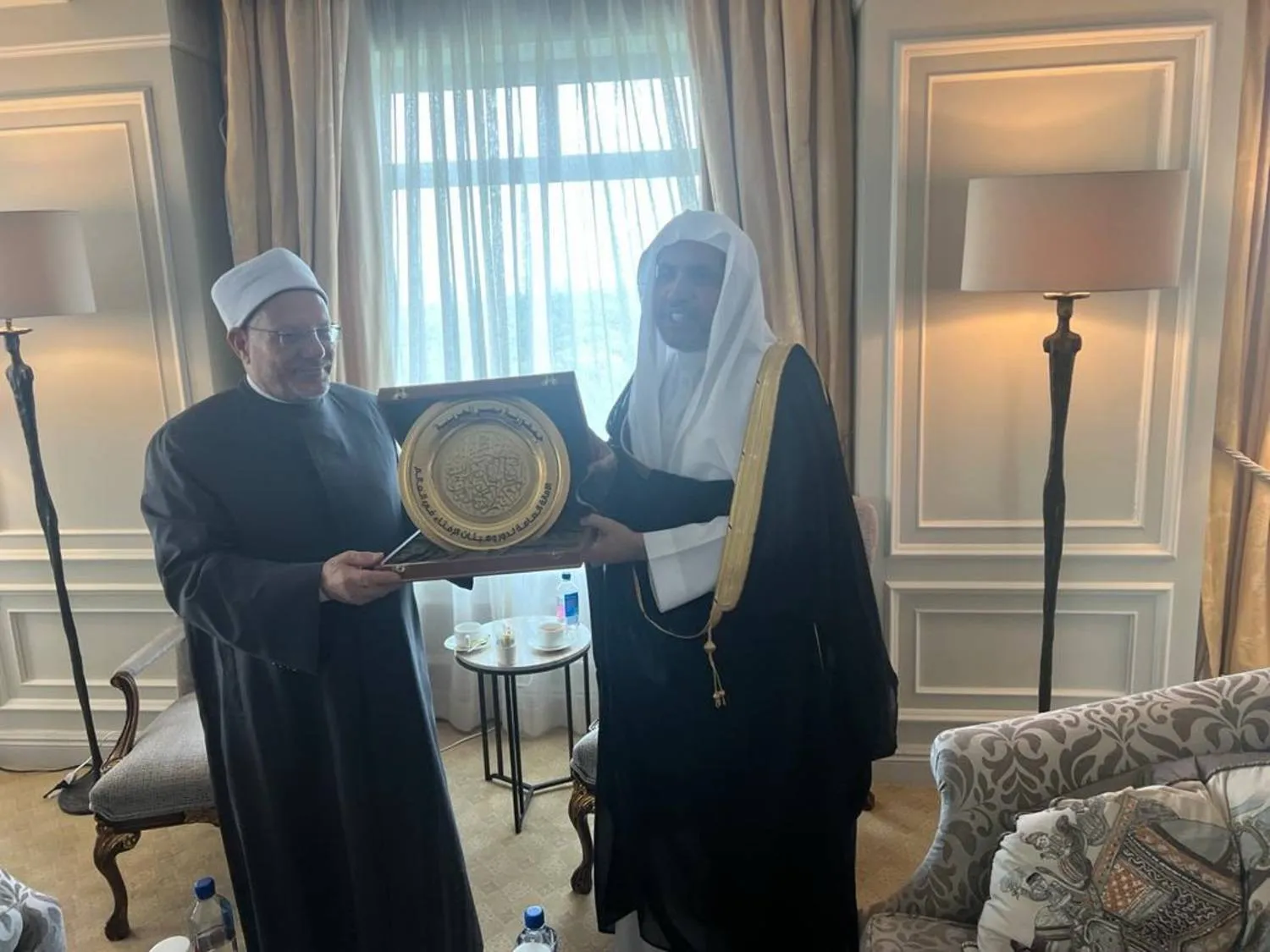The Secretary-General of the Muslim World League (MWL), Mohammed al-Issa, reiterated the importance of the solidarity of religious institutions, which helps promote constructive dialogue and understanding between people.
The Sec-Gen met the Egyptian Mufti Shawki Allam on the sidelines of the Building Bridges Between East and West Forum at the United Nations headquarters in New York.
Issa asserted that cooperation between religious institutions promotes tolerance and coexistence.
He noted that through continuous communication and exchanging experiences and knowledge, the institutions could contribute to presenting a tolerant and balanced religious vision of current global challenges.
The Mufti stated that cooperation and coordination between religious institutions boost people's religious awareness, spread peace and tolerance, and correct misinformation propagated by extremism and militancy groups.
He stressed boosting joint efforts enhancing communication and understanding between peoples, and promoting human values, asserting that it is the best way to achieve global peace and societal stability.
Allam said during the meeting that the fatwa must be based on the scientific methodology, the legal rooting of peace, and the awareness of contemporary reality, according to a statement to the Egyptian Dar al-Iftaa.
Allam explained that Dar al-Iftaa has a pioneering experience in training and qualifying muftis through three-year programs.
Egypt's Dar al-Iftaa trains several scholars to become religious figures in their home countries.
The exchange of experiences between religious institutions contributes to expanding knowledge and mutual understanding of religious and social issues and enables religious institutions to benefit from each other's experiences, develop work methods, and address current challenges.
Allam gifted Issa the shield of the "General Secretariat for Fatwa Authorities Worldwide" in appreciation for his efforts in promoting global peace and understanding.
Mufti's advisor Ibrahim Najm stated that the Mufti would meet several UN leaders to build communication and cooperation bridges and set joint practical goals and programs to enhance communication and knowledge sharing to confront Islamophobia, hate speech, and extremism.









